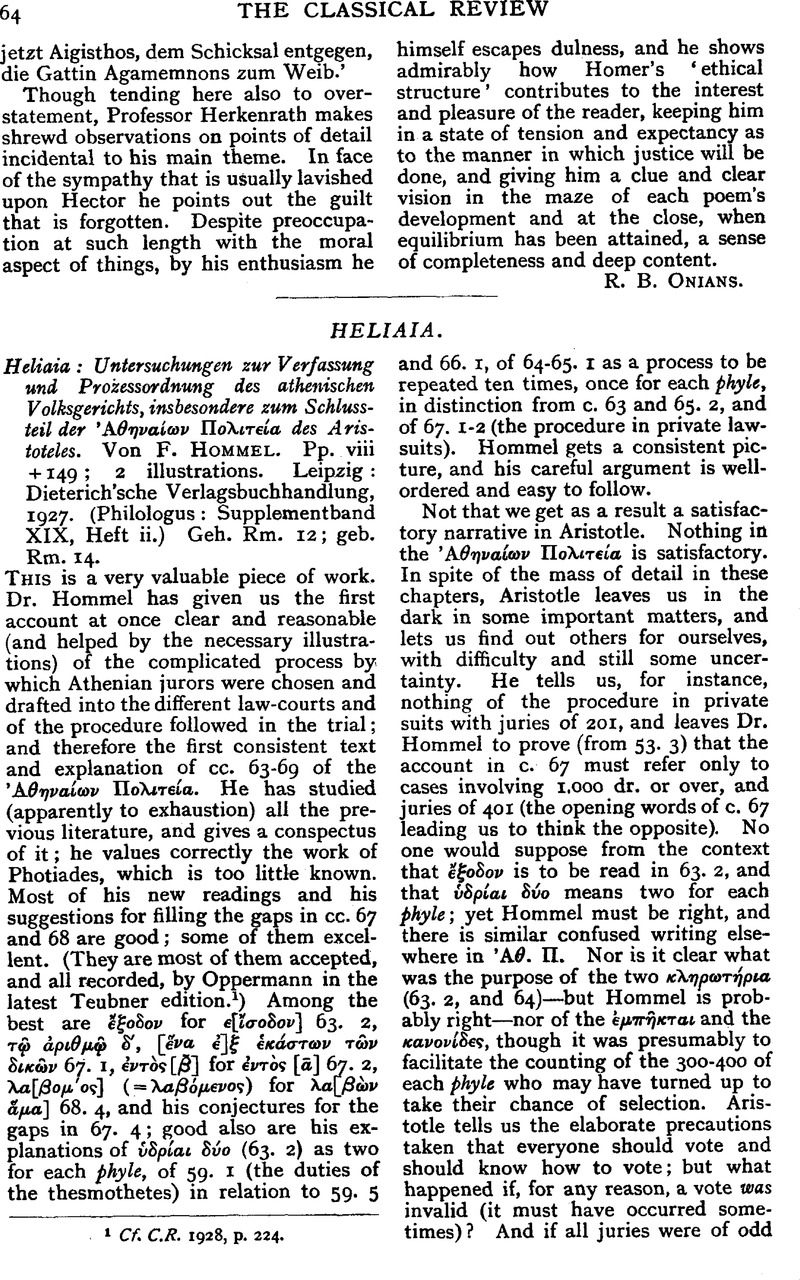No CrossRef data available.
Published online by Cambridge University Press: 27 October 2009

page 64 note 1 Cf. C.R. 1928, p. 224.
page 65 note 1 There are others of these obscurities which H. does not sufficiently discuss. He notes, for example (p. 107), that we do not know how the jury voted when there were more than two parties to a case (e.g. Isaeus XI., Dem. XLIIL); but, what is more important, we do not know how the time was allotted between them, and how this affected the other cases to be tried on the same day. Nor does he see the full implications of his conclusion (which in itself seems right) that on one day only private cases were heard, and that in each court of 401 one of each of the four kinds of cases allowed by law (over 5,000 dr., between 2,000 and 5,000 dr., between 1,000 and 2,000, and a διαδικασ⋯α was heard. For different archons had to preside at different kinds of trials; in settling, therefore, which private cases were to be put down for trial on a certain day, the archons had to find not only an (approximately) equal number of cases of each of these four kinds, but also the right number to be tried before a particular archon, and not to leave over, for example, a large number of cases of between 1,000 and 2,000 dr., all of which had to come before the polemarch.
It is also difficult to understand the purpose of the βακτηρ⋯αι plus the two kinds of σ⋯μβολα used in the law-courts. But doubtless it was not more unnecessary than our own procedure with passports, when, before embarking, we show them to one official and receive a card which ten seconds later we give up to another.
page 65 note 2 Hommel (p. 107) regards the procedure in, νιμητο⋯ ⋯γ⋯νες by which the jurors had only to decide between two penalties, proposed by the prosecutor and by the defendant, as a special weakness of the Athenian system. But it was unavoidable; a jury of 500 could not debate among themselves what penalty to assess, at least not without inordinate delay. The weakness was mitigated by the rule that the penalties had to be proposed when the action was first tabled before the archon ; there could be no alteration of it in the law-court, according to the mood of the jury.
page 65 note 3 On 64. I [![]() notes that the servitor must have carried the boxes inside before this, a more important action than the shaking. I am inclined to conjecture εἰσεν⋯γκαντοσ
notes that the servitor must have carried the boxes inside before this, a more important action than the shaking. I am inclined to conjecture εἰσεν⋯γκαντοσ
page 66 note 1 Cf. C.R 1926, p. 8.
page 66 note 2 Dem. XIX. 1 should also be discussed in this connexion.